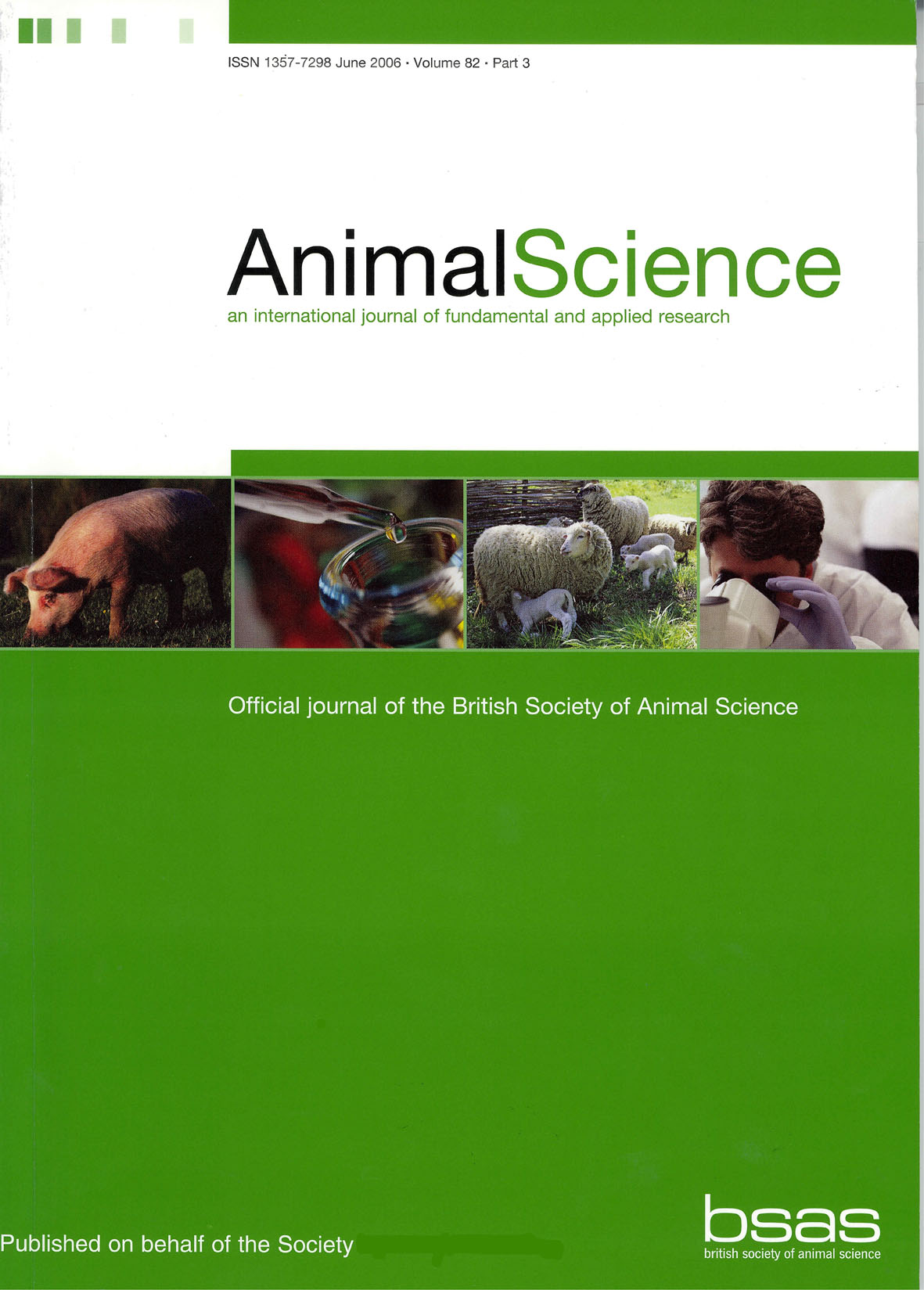Article contents
Threonine requirement of growing pigs (50 to 95 kg) in relation to diet composition
Published online by Cambridge University Press: 02 September 2010
Abstract
A study was conducted to evaluate increasing dietary levels of threonine on performance and carcass quality of growing gilt pigs (live-weight period of 50 to 95 kg; no. = 384) by using two different types of basal diets. One basal diet (basal A) was composed of highly digestible food ingredients and the other diet (basal B) of less well digested food ingredients. Before starting the growth trial, Heal apparent digestibility ofamino acids of both basal diets was determined in an in vivo digestibility trial with pigs. Both basal diets were composed in such a way as to obtain equal contents for net energy and Heal digestible threonine, lysine, methionine + cystine and tryptophan. The content of Heal digestible threonine in both basal diets was approximately 3·3 g/kg, corresponding with a total threonine content of 4·8 g/kg in basal diet A and 5·4 g/kg in basal diet B. To both diets three graded dose levels (0·4, 0·8 and 1·2 g/kg) of L-threonine were added, providing at the highest supplemented level 4·5 g/kg Heal digestible threonine. The requirement for Heal digestible threonine was estimated to be 4·1 g/kg regardless of diet composition. This estimated requirement was mainly based on the results for food conversion efficiency. For obtaining maximum weight gain, the requirement for Heal digestible threonine was found to be somewhat higher than for maximum efficiency of food utilization. The estimated requirement figure of 4·1 g Heal digestible threonine corresponded with approximately 5·6 g total threonine per kg in basal diet A and 6·2 g/kg in basal diet B. Carcass quality was not affected by the content of threonine in the diets.
- Type
- Research Article
- Information
- Copyright
- Copyright © British Society of Animal Science 1997
References
- 10
- Cited by


